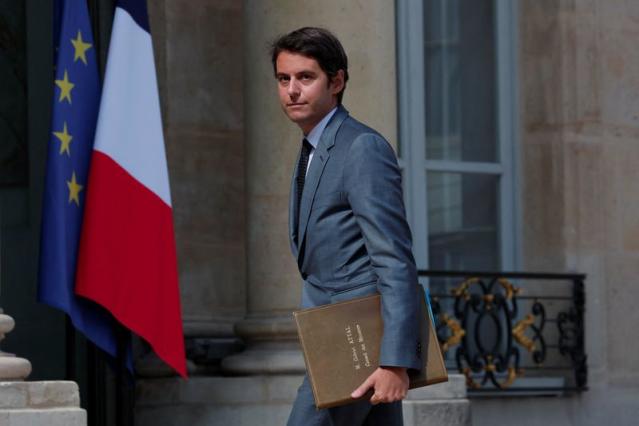France to Prohibit Abaya in State Schools to Preserve Secularism

A New Chapter in France’s Secular History as France to Prohibit Abaya
France is taking another stride in its commitment to secularism by announcing a ban on children wearing the abaya, a loose-fitting, full-length robe commonly worn by some Muslim women, in state-run schools. Education Minister Gabriel Attal made this announcement just ahead of the back-to-school season.
This move is part of France’s ongoing efforts to maintain a secular educational environment while grappling with the challenges posed by its growing Muslim minority.

France’s History of Secularism
France has a long history of secularism dating back to the 19th century when it separated religion from public education, removing any traditional Catholic influence. Since then, it has been navigating the delicate balance of respecting individual religious freedoms and maintaining a secular education system. In 2004, France banned headscarves in schools, and in 2010, it prohibited full-face veils in public, actions that drew both support and criticism, especially within its sizable Muslim community.
Secularism, referred to as “laïcité” in French, stands as a foundational pillar within the nation’s political and social fabric. It unifies citizens across the political spectrum, drawing support from left-wing proponents of Enlightenment-era liberal values to right-wing voters who express concerns about the rising impact of Islam in France. Safeguarding secularism remains a paramount objective for many in France, symbolizing the nation’s unwavering commitment to equality, religious impartiality, and personal liberties.
Nurturing Religious Neutrality within Educational Institutions
Education Minister Gabriel Attal’s explanation for the recent ban underscores the government’s unwavering commitment to maintaining religious impartiality within public schools. He articulated, “When students enter a classroom, it is essential that their religious beliefs remain undisclosed through their appearance.” This decision represents a concentrated effort to fortify the fundamental tenet of secularism within the educational sphere, placing education above religious identification. This proactive initiative is regarded as a means to further solidify the secular character of the educational system.
France’s efforts to balance secularism with the rights of its religious minority have not been without challenges and controversies. While some argue that these measures uphold the principles of secularism and gender equality, others contend that they infringe upon individual religious freedoms.
As France continues to evolve its approach to secularism, it must navigate the complexities of religious diversity and societal cohesion.
France’s decision to prohibit the abaya in state-run schools is a significant step in its ongoing commitment to secularism. This action, part of France to Prohibit Abaya, reflects the nation’s dedication to preserving religious neutrality in education and ensuring that students’ religious affiliations do not interfere with their learning experiences.

However, it also raises important questions about the balance between individual religious freedoms and the broader principles of secularism in a diverse and multicultural society. As France moves forward, it will continue to grapple with these complex issues in its pursuit of a harmonious and inclusive society.
France to Prohibit Abaya
On Sunday, Gabriel Attal, French Education Minister
made a significant announcement regarding France’s education system. He revealed that the Islamic garment, commonly known as the abaya, will be prohibited in schools. Emphasizing the core values of the Republic, particularly secularism,
Attal articulated, “The school of the Republic was built around strong values, secularism is one of them. … When you enter a classroom, you shouldn’t be able to identify the religion of pupils.” With this statement, he declared that students will no longer have the option to wear abayas at school.
The abaya, a long and flowing dress, is commonly associated with Muslim women, adhering to Islamic principles of modesty in clothing.
However, it is also worn by various communities in North Africa and the Middle East. France had previously banned religious symbols in schools in 2004, encompassing large crosses, Jewish kippahs, and Islamic headscarves. Yet, the status of the abaya had remained somewhat ambiguous, lacking specific regulations until this recent announcement.
source: reuters.com
Another world news. ¿How is Shakira’s statue in Barranquilla coming along?






